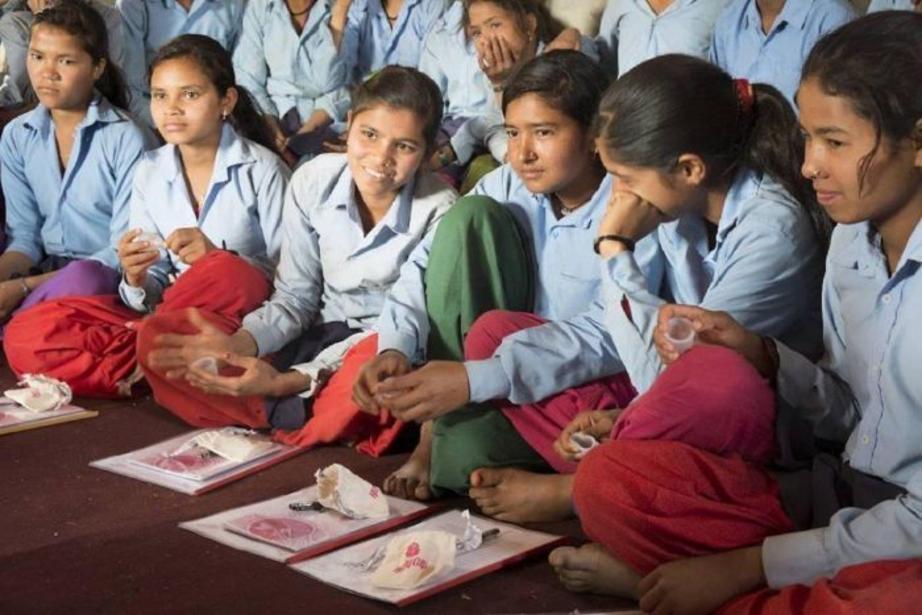Menstrual cups are helping Nepal's girls avoid the deadly Chhaupadi ritual
On a frosty morning this January, Gauri Bayak was found dead on the floor of a windowless hut in a remote village in far-western Nepal.
The 23-year-old had been spending the night in a special hut designed to house Nepal's "untouchables" — menstruating women who according to ancient Hindu superstitions are cursed and impure.
While enduring freezing overnight temperatures, Gauri lit a fire to keep warm. She never woke up — local news reported asphyxiation as the most likely cause of death.
Gauri is just one of the women who have lost their lives in the last year through Chhaupadi — an illegal but widely practised Nepalese ritual that imposes harsh conditions on menstruating women.
The string of deaths has outraged both the Nepalese and international community. But could a small piece of plastic be the catalyst for change?
A 'period revolution'
Menstrual cups are long-lasting silicone alternatives to tampons or pads that eliminate the need for frequent changing and disposal.
They're showing early indications of sparking a period "revolution" in Nepal's remote far west, where up to 95 per cent of women practice Chhaupadi.
The Rato Baltin pilot project, which gave free menstrual cups to hundreds of these women and girls last year, was "a total success", says Be Artsy CEO and reproductive rights activist Clara Garcia i Ortes.
"I never thought we would see so much change in such a short period of time," she said.
"The Ruby Cup had a 92 per cent acceptance rate, with only nine girls reporting no change in their experience with the Chhaupadi tradition."
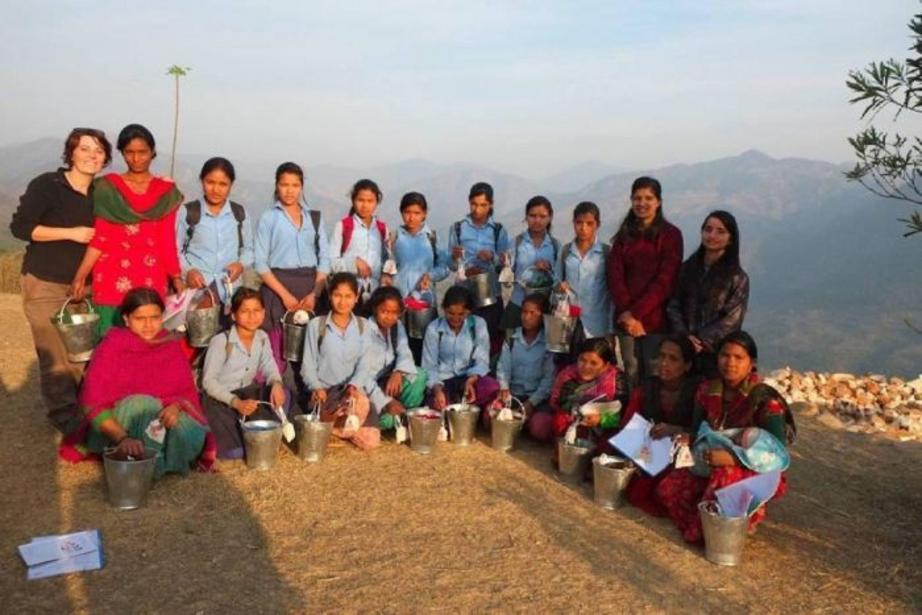 Nepalese school girls receive their reproductive health kits containing menstrual cups in Achham, far-western Nepal.
Nepalese school girls receive their reproductive health kits containing menstrual cups in Achham, far-western Nepal.
Life as an 'untouchable'
In its most extreme form, Chhaupadi banishes menstruating women to special huts or animal sheds for the duration of their period, exposing them to extreme weather conditions, animal attacks, deadly environmental hazards and sexual violence.
The ritual, which has been widely recognised as a form of violence against women, can also prohibit menstruating women from consuming fruit, vegetables and milk products, touching water sources, livestock and family members and entering religious temples and attending school.
The most vulnerable victims are post-natal mothers and their newborns, who in some regions of Nepal are also confined to Chhaupadi huts post-birth because the mother is bleeding — deprived of critical post-natal care, adequate nutrition and safety.
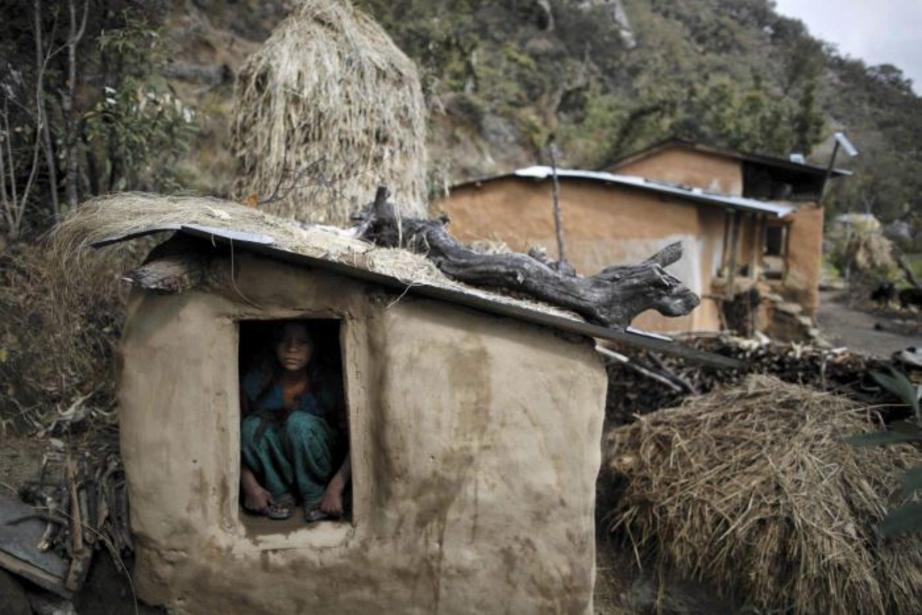 Uttara Saud, 14, sits inside a Chhaupadi shed where Nepalese women are banished to while menstruating.
Uttara Saud, 14, sits inside a Chhaupadi shed where Nepalese women are banished to while menstruating.
Last August, following pressure from human rights activists, the Nepalese government passed new legislation sanctioning the destruction of Chhaupadi huts and imposing three-month jail sentences and 3,000 rupee ($37) fines for those subjecting women to the ritual. This follows the banning of the ritual in 2005, which failed to eradicate it, particularly in remote western regions.
As a Nepalese woman told The Kathmandu Post recently, women are reluctant to stop the ritual, "because they fear being excommunicated for challenging the custom."
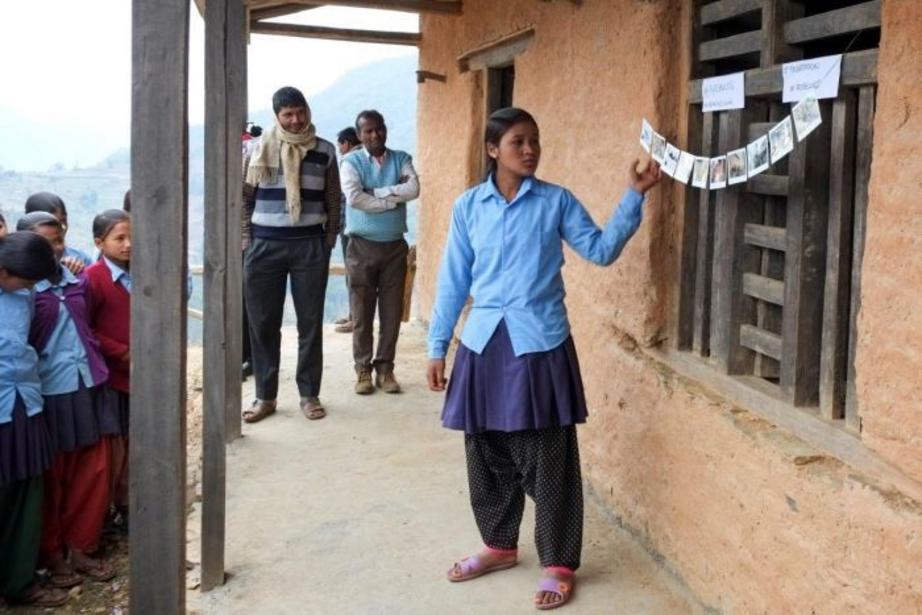 Be Artsy's Rato Baltin Pilot Project has been using photography to help re-educate school-aged Nepalese girls about Chhaupadi.
Be Artsy's Rato Baltin Pilot Project has been using photography to help re-educate school-aged Nepalese girls about Chhaupadi.
Girls 'feel more self-confident'
Accompanied by reproductive education workshops, Ms Ortes says menstrual cups are challenging the authority of ancient Hindu myths about purity.
"Since the menstrual blood is collected inside the body [by the cups], the girls are considered 'clean' and both the girls and their families feel more self-confident," she said.
"Some families have allowed them to sleep inside the house. Nobody knows [the girls] are menstruating, so they can engage in regular activities traditionally prohibited by Chhaupadi, like cooking food."
The Rato Baltin pilot project also reported increased school attendance among girls using the menstrual cup in remote communities with historically high levels of absenteeism attributed to Chhaupadi rituals and inadequate sanitary facilities.
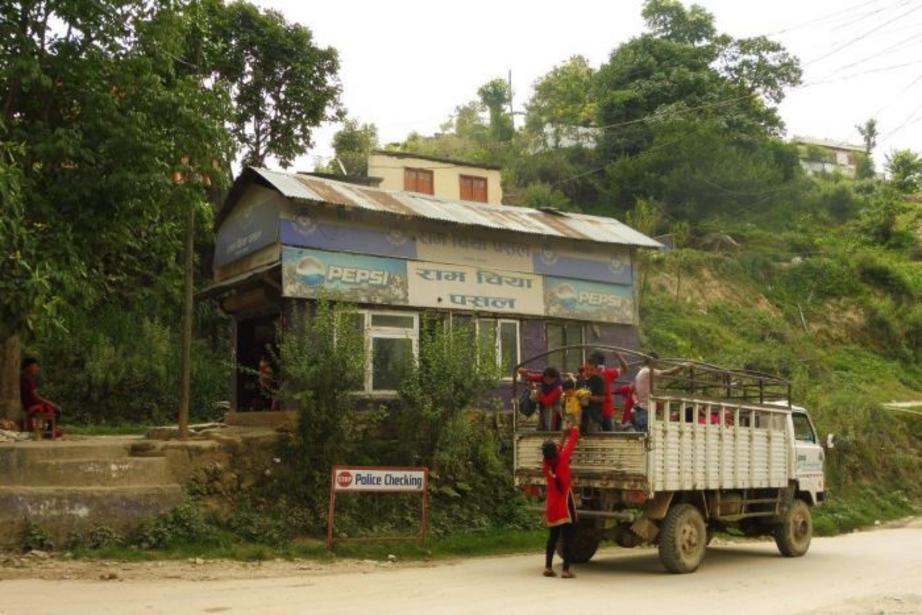 Nepalese girls on their way home from school in the Kathmandu Valley.
Nepalese girls on their way home from school in the Kathmandu Valley.
'I think it's working'
Executive director of Nepal Communitere, Bahar Kumar, has been using the menstrual cup to break free from the "diluted" form of Chhaupadi, which is practised in more culturally progressive, urban areas like Kathmandu.
"Though [Chhaupadi] is disguised as providing menstruating women a break from being in the kitchen, the belief that a menstruating girl or woman is 'contaminated' remains at the core and can leave many feeling dirty, ashamed and isolated," Ms Kumar says.
"If you refuse [to disclose your period to your family], your trash can provide evidence and lead to enforcement of these practices.
"Because menstruation cups don't produce any trash, they provide us with privacy.
"I've bought all my nieces menstrual cups and implemented a 'don't ask, don't tell' policy for myself in my family, slowly encouraging them to do the same.
"I think it's working."
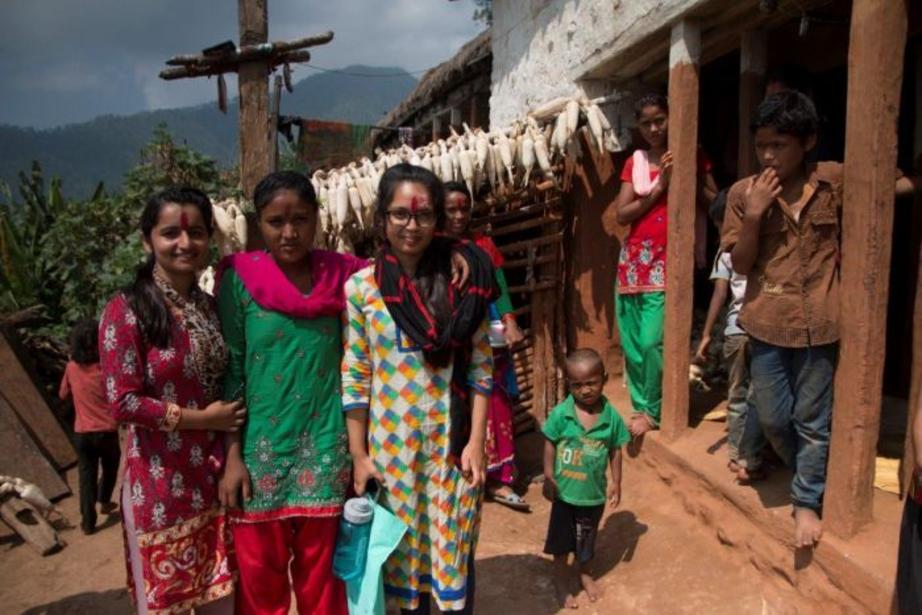 Nepalese school girls receive reproductive education from Be Artsy nurses in Achham.
Nepalese school girls receive reproductive education from Be Artsy nurses in Achham.
A band-aid solution?
The potentially life-saving solution is not without its challenges: religious, cultural and educational.
Deputy Director of Women LEAD Nepal, Shreya Thapa, says the menstrual cup is a band-aid solution to the ancient belief that menstruation is impure.
"In terms of actually changing mentalities, I don't know whether the product would have much of an effect," Ms Thapa said.
"Before you can get into the benefits of the menstrual cup, we need to have that conversation about girls' and women's sexuality. Like, are you really impure? What should you be ashamed of?
"Women need the space to understand their bodies in this context, as opposed to saying to them, 'you can't talk about this. You're dirty'."
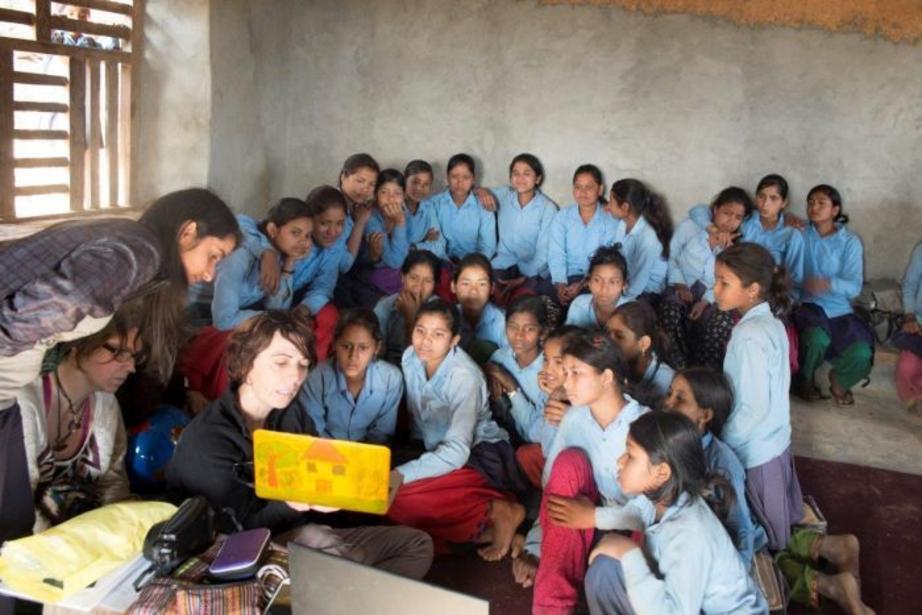 Be Artsy CEO Clara Garcia i Ortes educates Nepalese girls on the benefits of the menstrual cup.
Be Artsy CEO Clara Garcia i Ortes educates Nepalese girls on the benefits of the menstrual cup.
Strict interpretations of virginity and lack of reproductive education also present challenges to the menstrual cup.
"If you're not raised to explore or accept your body, the idea of inserting something into you, like the menstrual cup, is very foreign and opposed to our culture in a lot of ways," Ms Thapa said.
"Since most don't even use tampons, you can't utilise that as a segue into getting women comfortable with inserting a menstrual cup.
"And, coming into this grey area of virginity, the room for misinterpretation is there.
"Your sexual purity — and value as a woman and a wife — could potentially be questioned."
UNICEF Child Protection Specialist Pragya Shah Karki agrees that menstrual cups alone will not change the attitudes underpinning Chhaupadi. She advocates a multi-pronged strategy instead.
"The legal provision needs to be bolstered by extensive social mobilisation," she said.
"[We must] empower girls and women with information and skills to be able to challenge this harmful practice, and work with men and boys and other community members such as priests, teachers and political leaders to educate them about the physical and psychosocial effect Chhaupadi has on girls and women."
A safe solution to practical challenges
Despite its challenges, Ms Ortes says the menstrual cup is an ideal solution for a developing country such as Nepal, where a lack of sanitary infrastructure creates practical challenges for menstruating women.
"There is no rubbish collection in Nepal, so women don't know what to do with used sanitary pads," she said.
"This can drive women to use dirty cloths and rags as an alternative, which present a high risk of infection.
"Menstruation cups can be cleaned easily and used safely for up to 10 years."
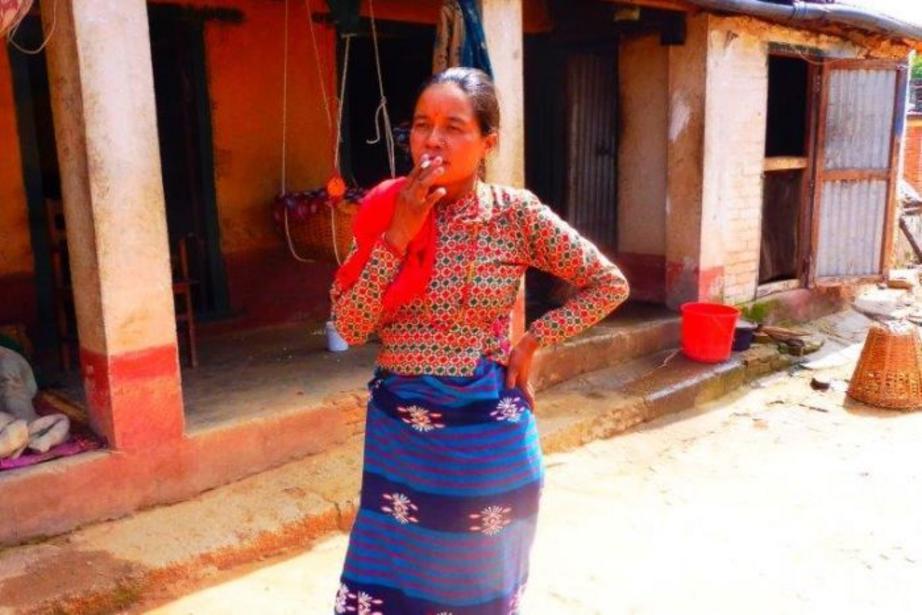 Some women have been using the menstrual cup to rebel against Chhaupadi.
Some women have been using the menstrual cup to rebel against Chhaupadi.
But Ms Thapa is concerned that menstrual cups are unaffordable for most Nepalese women. While cheaper over the long term than buying disposable products each month, menstrual cups require an upfront investment (about $25-50).
"For a lot of Nepalese women, that would be impossible," Ms Thapa said.
Ms Ortes doubts the new legislation will stop Chhaupadi, but says it's a step in the right direction that represents a shift in community attitudes.
"Combined with education programs at a grassroots level in remote areas, we believe that there is significant potential for change."

